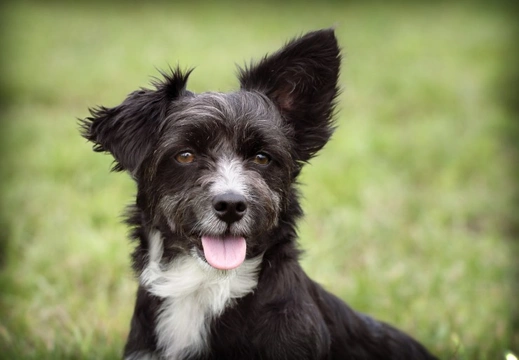
Should You Vaccinate Your Dog Against Canine Flu?
With winter here and the cold snap set to remain for the next few months, we all start to think about the possibility of going down with either a cold or worse still, the flu. What dog owners often forget is that their pets too can catch a cold or the flu, but the question is whether a dog should be vaccinated and if it is safe to do so?
The flu virus that affects our canine friends is not the same as the one that affects people and although you may think that because the weather has turned a lot colder that your dog is more at risk of catching flu, in truth dogs can pick up the virus at any time of the year because it is not thought to be seasonal. Canine Influenza type H3N8 is a relatively newcomer having only been diagnosed a few years ago, but there is now a newer strain called H3N2 which was at one time only seen in South Korean and Chinese breeds.
Symptoms Very Similar to Kennel Cough
The problem with canine influenza is that the symptoms a dog displays are pretty much the same as those seen when a dog develops kennel cough. Dogs tend to sneeze a lot, cough and they have very runny noses. They go off their food and are lethargic showing very little interest in things they normally get excited about. When dogs get flu, they generally get over it as long as they are given lots of TLC and supportive care. Although it's worth bearing in mind that there is always a slight risk of them developing pneumonia which could make their condition a lot more serious and in a worst case scenario could be life-threatening.
To Vaccinate or Not?
If you are in two minds as to whether you should have your dog vaccinated against canine influenza, you should ask your vet for their advice because they would know if any other dogs in the area you live in have suffered from the flu and therefore been treated.
The other thing to take into account is the environment your dog lives in because if this is as good as it can be, the risk of your pet catching the flu are far less than if you own a lot of dogs that live in the same household where things might not be quite so hygienic. If you take your dog along to a grooming parlour on a regular basis or put them in a boarding kennel for any length of time, they are also more at risk of getting the virus and the same can be said if you leave them at a doggy day care centre where they will come into contact with lots of other dogs. You may find that many places where dogs are looked after or cared for request that all dogs be vaccinated against the flu to be accepted.
The other thing to bear in mind, is that if your dog regularly comes into contact with horses, they can catch the H3N8 virus from their equine counterparts. In short, dogs that spend a lot of time around horses are more at risk of catching this particular strain of canine influenza than dogs that don't come into contact with horses on a regular basis.
Other Considerations to Take into Account
You also have to assess your dog's overall health and physical condition which includes taking into account their age and any health issues they may be suffering from which could have negatively impacted their own immune systems. A compromised immune system would put them more at risk of catching the canine influenza virus. Again, discussing things with your vet would help you decide whether or not your dog should be vaccinated or not.
Another thing that's worth bearing in mind is that the vaccine that's currently available would only protect a dog against the H3N8 canine influenza virus and not the H3N2 strain. This is particularly worth making a note of if you are planning to travel with your canine companion to any countries where this particular strain may be prevalent.
Conclusion
If you are at all worried whether you should have your dog vaccinated against canine influenza, the best person to talk to is your vet. They would be able to offer the right sort of advice especially if they have been treating your dog and therefore have all their health records to hand. A vet would ask a few questions which includes where you live, if you take your dog to a grooming parlour on a regular basis and if you take your dog along to obedience classes where they would come into contact with other dogs. Taking a dog for a walk in a public park does not put them more at risk of catching the flu, but if they spend a lot of time in the company of other dogs, then having your dog vaccinated might be a wise decision.



